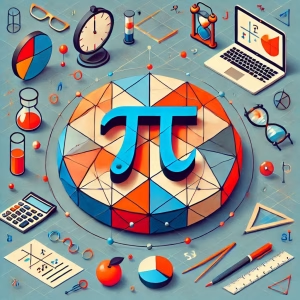What if everything you see, feel, and remember is part of a vast, hyper-realistic simulation?
This isn’t just the stuff of science fiction. The Simulation Hypothesis, the idea that our universe might be an artificial construct, has become a serious topic of discussion among philosophers, physicists, and technologists. It challenges our most basic assumptions about reality and invites us to consider a radical possibility:
we are not living in base reality, but inside a sophisticated digital simulation.
The roots of this idea stretch back to ancient philosophy. Plato’s Allegory of the Cave imagined people mistaking shadows for reality, unaware of the true world beyond. Centuries later, René Descartes questioned whether an evil demon could be deceiving him, leading to his famous conclusion: “I think, therefore I am.” These thought experiments laid the groundwork for modern discussions about simulated realities, but it wasn’t until the rise of digital technology that the hypothesis gained scientific traction.
In 2003, philosopher Nick Bostrom proposed the simulation argument, which suggests that if a civilization becomes capable of creating conscious simulations, it could generate so many simulated beings that a randomly chosen conscious entity would almost certainly be in a simulation. This argument presents a trilemma:
- if advanced civilizations do create them, the number of simulations would far exceed base reality and we would therefore almost certainly be living in one.
- either such simulations are not created because of technological limitations or self-destruction;
- advanced civilizations choose not to create them;
This idea gains plausibility when we consider the trajectory of our own technology. In just a few decades, we’ve gone from Pong to photorealistic video games, from dial-up internet to immersive virtual reality. Artificial intelligence can now mimic human conversation, generate art, and even write code. If this exponential progress continues, it’s conceivable that future civilizations could simulate entire worlds—complete with self-aware digital beings who believe they are real.
Some physicists have speculated that the universe itself might bear the fingerprints of a simulation. The idea of pixelated space-time—that space and time are not continuous but made of discrete units—mirrors how digital systems operate. The uncanny precision of physical laws and the mathematical elegance of the universe have led some to wonder: is this the result of a natural process, or the product of intelligent design?
Quantum mechanics adds another layer of intrigue. The observer effect, where particles exist in multiple states until measured, has been likened to a rendering engine in a video game—only generating detail when needed.
Yet, the hypothesis is not without its critics. Some argue that simulating an entire universe, down to every atom, would require computational resources beyond even the most advanced civilization.
Others point out that the hypothesis is unfalsifiable—there’s no clear way to test it, which places it outside the bounds of empirical science. Moreover, the idea that we’re more likely to be simulated than real relies on assumptions about future civilizations that we can’t verify.
A central challenge is the nature of consciousness. We still don’t fully understand how consciousness arises in biological systems, let alone whether it can be replicated in code. If consciousness is an emergent property of complex information processing, then perhaps it could arise in a simulation. But if it depends on something fundamentally non-computable, then no simulation—no matter how advanced—could ever produce it.
Suppose, for a moment, that we are living in a simulation. What would that mean for our lives, our choices, our values? Would free will still exist, or would our actions be predetermined by code? Would morality still matter if we’re just lines of code? Most philosophers argue that simulated suffering is still suffering, and simulated joy is still joy. In other words, the authenticity of our experiences doesn’t depend on the substrate of our reality.
The Simulation Hypothesis has inspired countless works of fiction, from The Matrix to Westworld to Black Mirror. But it also serves a deeper purpose. It forces us to confront the limits of our knowledge and the assumptions we make about the world. Whether or not we’re in a simulation, the question itself is valuable. It encourages interdisciplinary thinking, combining physics, philosophy, computer science, and ethics. It reminds us that the universe is still full of mystery—and that asking bold questions is often more important than finding definitive answers.
In the end, the Simulation Hypothesis may never be proven or disproven. But like all great ideas, its power lies in its ability to expand our imagination. It challenges us to think more deeply about what it means to be conscious, to be real, and to be human. And perhaps that’s the most important simulation of all.




